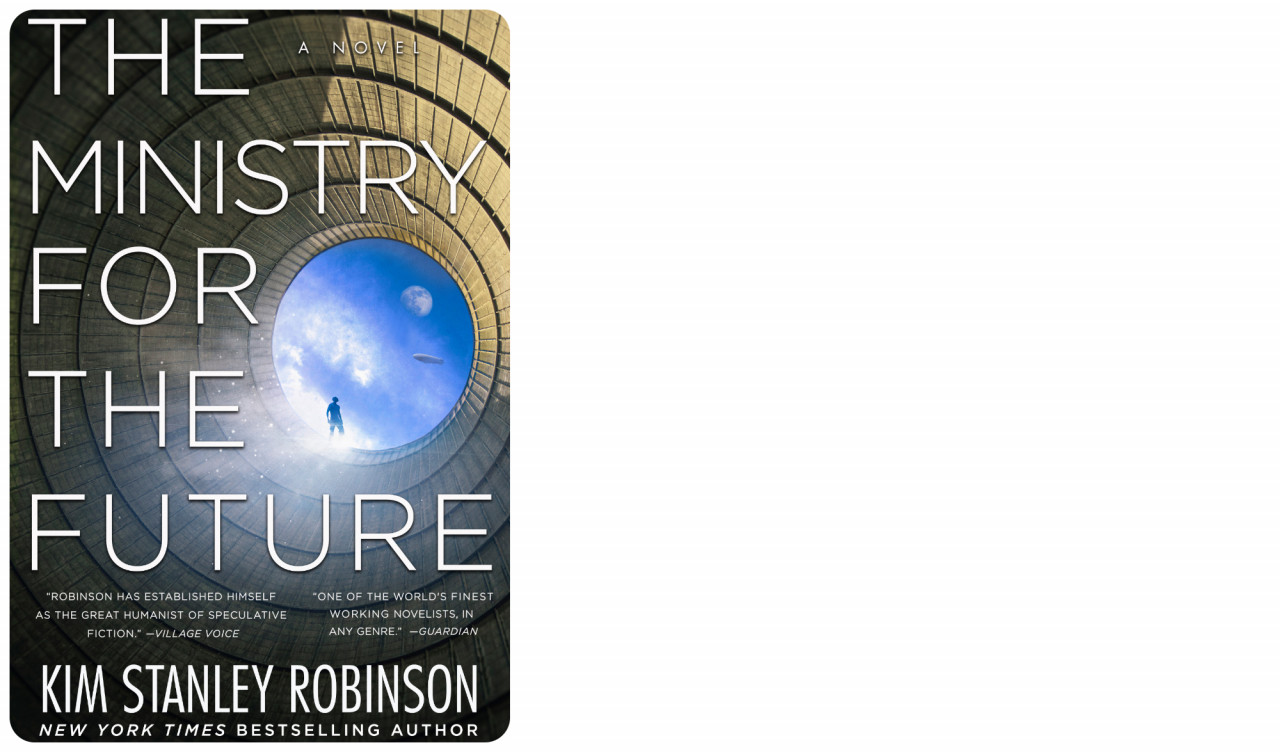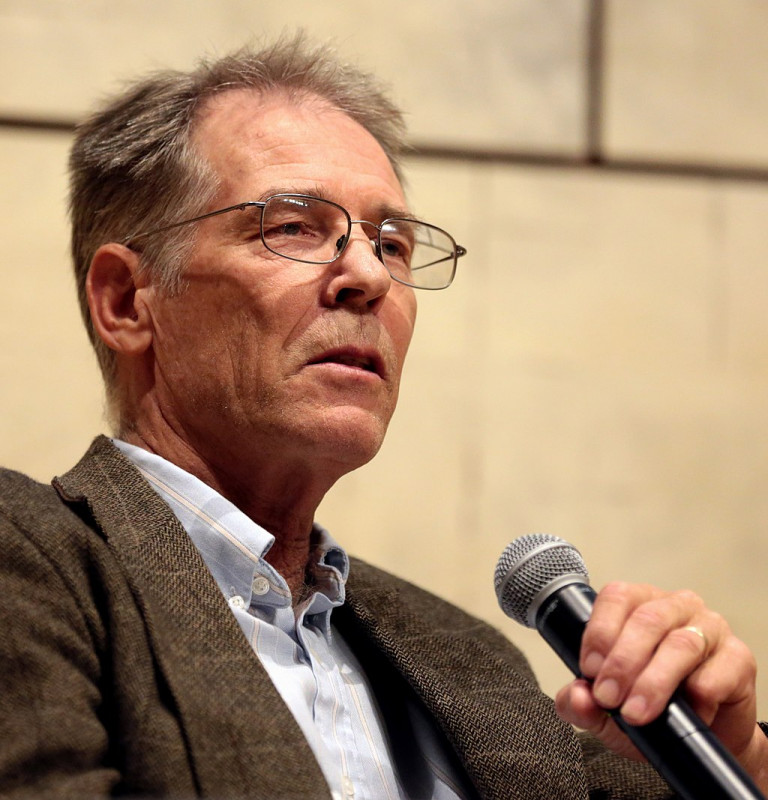IN the wake of the Spanish Civil War, a young Catholic priest named José María Arizmendiarrieta settled amid the rolling hills, in the little town of Mondragón (or Arrasate, as it is called in Basque), in Spain’s Basque Country. He established a technical college there, and later a workers’ cooperative that became the model for a series of similar cooperatives, which were gathered under the umbrella of what was to become the Mondragon Corporation, a collective that has not only survived but thrived for almost sixty-five years.
Its foundational principles are humanist. The worker-owners are all paid a living wage, with a cap placed on the maximum wage management can receive. No executive can earn more than five times the lowest-paid worker, as opposed to factors of one thousand or more prevalent in multinationals. Social responsibility and fair wages are at the heart of the corporation’s ethos, but also its success.
Readers of Kim Stanley Robinson’s science fiction novels, which number more than twenty, will know that a fictional extrapolation of the Mondragon Corporation, and its principles of social justice, play an important role throughout his vast body of work. His latest book, ‘The Ministry for the Future’ is no exception.
Robinson is known as a science fiction writer, but readers expecting ray-guns, intergalactic spaceships, and hideous aliens won’t find them here. Instead, this novel might fit more comfortably under the burgeoning genre of Cli-Fi or Climate Fiction.
The titular ministry is founded under the auspices of the United Nations, based in Zurich, and headed by a feisty Irish woman with the clichéd name of Mary Murphy.
Set in the decades from 2025 onwards it deals principally with the Ministry’s attempts to oversee global climate action, and the fight against vested interests resisting change in the self-destructive course the global economy has set.
It is a globe spanning novel, but it opens in India, with an all-too-believable depiction of a devastating heatwave that kills millions. It is a stunning and tightly-paced opening to a novel that slowly loses momentum over its sprawling and hugely digressive length.
American foreign aid worker Frank May somehow survives the catastrophe, but is permanently psychologically scarred and possibly neurologically heat-damaged. The relationship he later forms with Mary Murphy borders on friendship with a pinch of Stockholm Syndrome.
Several attempts are made on Mary’s life and we see her fleeing across the dramatic landscape of the Swiss Alps in the competent company of her bodyguards.
The Ministry has limited tools to deal with its remit. It becomes increasingly clear that laws and regulatory oversight will not be enough to stop or even slow the motors of imminent climate collapse.
An ancillary black-ops faction, which the Ministry can plausibly deny, sets out to act in radical ways that bring about some of the desired effects.
Passenger airlines fall from the sky at a rate that essentially kills the airline industry, as well as thousands of passengers. Similar attacks cripple the shipping industry.
Capital goes elsewhere, noting that any nascent green initiatives are never targeted by these terror attacks. Zero carbon, and even carbon-negative, forms of transport, including solar sail ships and dirigible airships, are developed and become mainstream.
Meanwhile, the Ministry tackles the central banks. This happens in phases over the space of the novel, with new forms of crypto currency, linked to secure social media accounts, allowing all money to be traceable, putting an end to tax havens. It is a bit more complicated than that. In fact, a lot more.
Stylistically ‘The Ministry for the Future’ is an unconventional novel. It has more than a hundred short chapters, many of which are narrated by unknown characters, a few of whom are not even human. Some of the shortest chapters are written in something like the format of a riddle, with the final reveal that the speaker is actually a photon or an atom of carbon. Other chapters are notes from meetings.
A lot of the book is given over to lengthy technical discussions of macro-economics, which some readers may find enthralling, while others might find usefully eye-glazing as bedtime reading.
The Mondragon Corporation, and the lessons to be learned from its ethical and socially responsible business model, are some of the many more interesting elements discussed.
One part is set in Antarctica, detailing technical attempts to slow the inexorable slide of glaciers into the sea.
It is an ambitious novel and a rallying cry for coherent and substantial climate action, offering many solutions that can or are being implemented, though to date not at anywhere near the scale required.
The novel is something of a juggling act, with dozens of objects tossed in the air, so many that it is often difficult to discern a satisfying narrative line.
Close to the end of the novel the central figures are brought back to the fore, but often the ancillary forays are too lengthy and digressive for the reader to maintain interest in the characters’ story arcs.
There are a few missteps that an attentive editor might have caught. In relation to the Irish characters, there is a reference to Protestants as ‘Prots’, which will trip up any Irish reader, who will know that the favoured diminutive is ‘Prods’.
While Mumbai gets to be called by its most recent official name, Bengaluru does not. Elsewhere Bangalore is referred to as a state rather than a city. While Kerala is named, Karnataka is not. The writer gives the impression that Trivandrum and Thiruvananthapuram are two different cities, rather than the same place.
While it is refreshing to see a US author place so little focus on the cultural hegemony of his home country, it is a little disappointing he, or a competent editor, didn’t bother to do a little more fact checking.
When immersed in a story, this lack of attention to factual details can instantly pull the reader out of the narrative and unnecessarily undermine the other content of the book, which is all the more galling since it is clear that a huge amount of research went into the writing of this novel.
That said, it is a very informative, occasionally funny, and deeply important book, that offers many interesting ways to think about the kind of future we want for this planet and its inhabitants.
Anyone concerned about the environment, climate change, and the crushing life-destroying aspects of unfettered capitalism will find this an interesting and intelligent, if not wholly satisfying, read. – The Vibes, March 20, 2021























